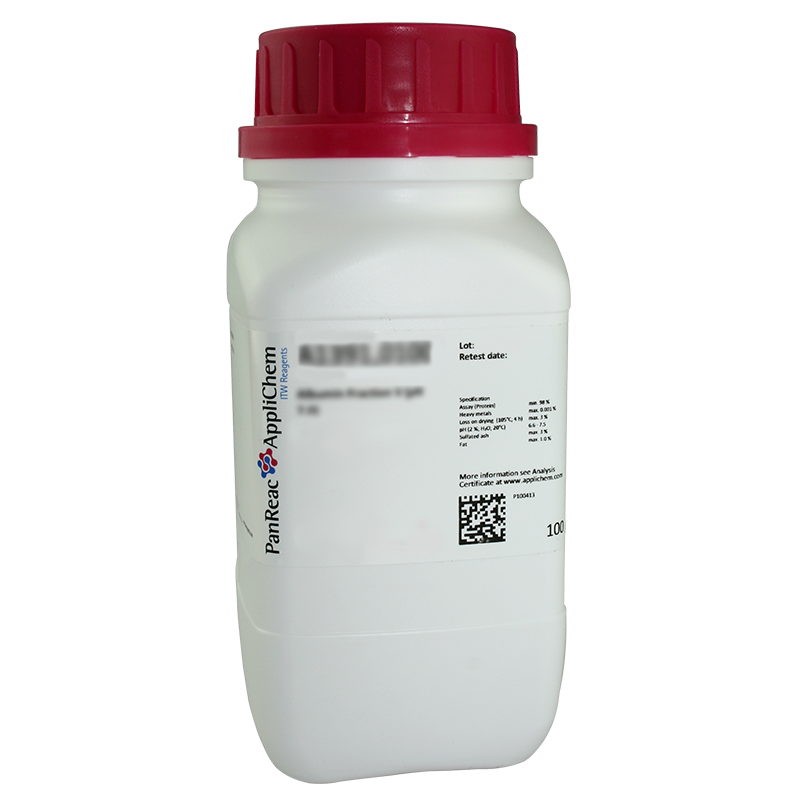Packs sizes (1)
| code | packaging size | price per unit | box price per unit | |
|---|---|---|---|---|
| Code & packaging | Price per piece | |||

|
code
A1098,1000
|
packaging size
1 kg
|
price per unit
single
$1829,40
|
box price per unit
|
Technical data
- Solubility:
- 1800 g/L (H2O)
- Physical Description:
- Solid
- Product Code:
- A1098
- Product Name:
- Cesium Chloride 99.999 % for molecular biology, BioChemica zur Analyse
- Specifications:
- DNases/RNases/Proteases: not detectable
Assay: min. 99.999 %
Al: max. 0.0001 %
Ba: max. 0.001 %
Ca: max. 0.0001 %
Fe: max. 0.0001 %
Li: max. 0.0001 %
Na: max. 0.0005 %
Cr: max. 0.0001 %
K: max. 0.0005 %
A (1 cm/50 % in water HPLC grade)
260 nm: max. 0.02
280 nm: max. 0.02
- Hazard pictograms
-
- WGK:
- 1
- Storage:
- RT
- Signal Word:
- Attention
- GHS Symbols:
- GHS08
- H Phrases:
- H361
- P Phrases:
- P201
P202
P280
P308+P313
P405
P501
- EINECS:
- 231-600-2
- CS:
- 28273985





